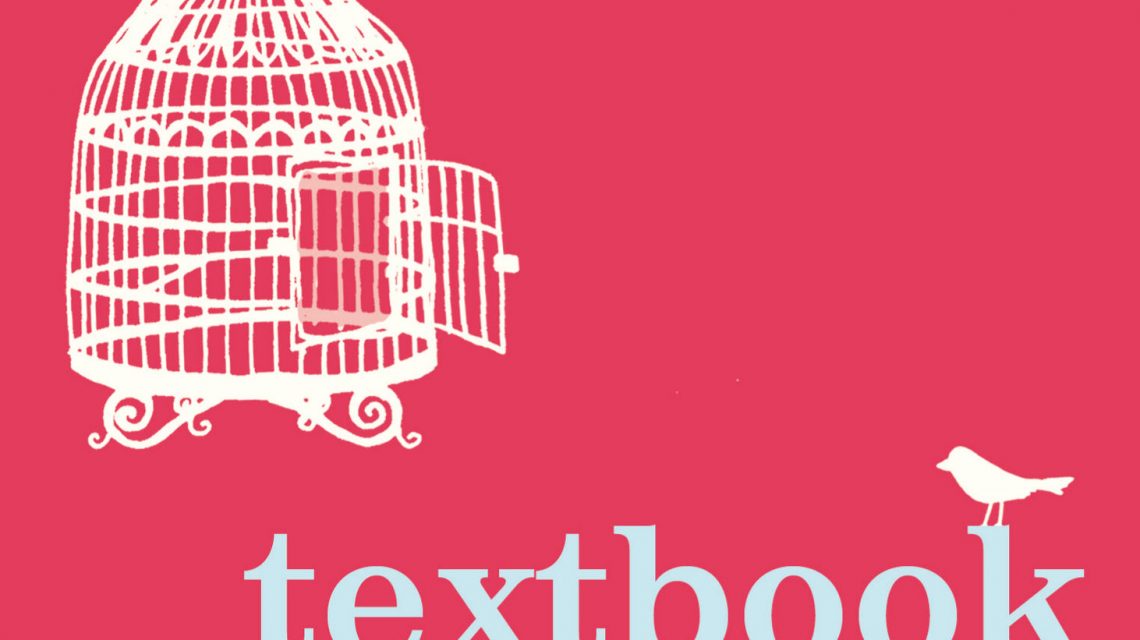The Case for a Reformed/ Pristine Islam January 30, 2015 – Posted in: Uncategorized – Tags: Love
Some 1.6 billion people on this planet believe that by virtue of being the followers of the last prophet they have been entrusted to play a very special role in future history. This belief in their chosen ness (khaire ummah) is as much part of their faith as the belief in the oneness of God almighty, His messengers, the hereafter and the divine agency of angels. This ideological stance of world leadership as opposed to the stark realities of real world where they find themselves in the web of global enmity and hatred have created a spilt personality among them. If we are really the khaire ummah — the chosen nation to lead history till end time, why for centuries we find ourselves so much on the margins of history, they would ask?
That the Muslim nation is in a state of perpetual decline and that something has gone awry in her centuries long journey are no novel contentions any more. However, so far Muslim intellectuals and reformers have been concentrating on mere reforming the Muslim society. Reforming or purging the historical Islam of alien elements has not been their focus of attention. They conveniently ignored the fact that historical Islam as it was transmitted to us through generations had absorbed varieties of individual perceptions and human interpretations. The canonization of the four schools of fiqh in Sunni Islam in the 9th century Hijra further muddled the Muslim mind. We took our intellectual digressions as the given, as if the four great fuqaha were part of the divine scheme, as Waliullah ad-Dehlawi would later come to argue in the 18th century. Ijtihad, an independent and fresh reading of the text, was accepted in principle but not to the extent of leading to founding a fifth school. In short, we were only allowed to think within the fiqhi paradigms of the four schools and that too without any critical appraisal of the intellectual premise on which these schools were founded. A truly fresh or independent reading of text, it was supposed, demanded a mujtahid mutlaq, a repository of all-knowledge, an all-knowing legendry mind whom the later centuries had stopped producing, we were told. Bringing thus the Muslim mind to a complete halt was disastrous, a point that I shall later return to.
The modern day Islamic movements vociferously argue that returning to Islam will once again take the Muslim Ummah back to its glory. However, they fail to realise that the kind of ideological package that we are delivering to the beleaguered Ummah today in the name of Islam is not the same that once was put forward by the holy prophet in the 6th century Arabia. I believe that the prophetic Islam in its pristine purity needs to be reconstructed before we embark on any Islamising mission.
The very fact that the Muslim Ummah is no single monolithic group and that there are many varied perceptions of Islam often in conflict with one another, is enough indication that reforming historical Islam is no new novice. Each group among Muslims draws its legitimacy from its claim that it alone has inherited the essence of true Islam and hence it alone has the sole right to salvation. According to this view that is held with varying intensity by almost all sects and religious groups, the other sects need to be reformed to bring them back to original Islam. But no group allows the same reformation within its own ranks lest it may end up in the dismantlement of the group itself.
Let us elaborate. For example, the salafis in principle, do not believe in taqleed, the blind following of the great fuqaha of the past. Instead, they encourage going back to the Qur’an and Sunnah. But their visions of the sunnah and search for it in historical material have made them prisoners of historical constructs. Which book can be more authentically helpful in reconstructing the spatial and temporal qualities of the prophet’s time than the Qur’an itself? Any reading of the Qur’an in the light of historical reportage is bound to incorporate human misgivings. The ahl-al-hadeeth, as they proudly call themselves, place extra-ordinary emphasis on the books of hadeeth, which by any honest assessments are at most history in most authenticated form that humans can imagine yet not free from human error and by no count as pure and definite as the exact words of the Revelation. Purging historical Islam of the alien and human interpretative elements of the past would only be possible if we have the courage and insight to critically evaluate historical and interpretative writings in the light of the Qur’an and not the vice versa.
So far Ijtihad has been mainly confined to finding a correlation among the four conflicting schools of fiqh. We have been vaguely silent on the issue whether it is possible to imagine an Islamic living without the four great fuqha of the past. If the great fuqaha were not God-ordained and if Islam was perfected long before their arrival on the scene, why do we fear that wrapping them up once and for all would dismantle our religious structure? Is really the fiqhi material of the past so essential and central to Islam? Is fiqh binding like the Qur’an and uswah of the prophet? Not so, if we ask the Qur’an which urges everybody to think, reflect and extract his own share of the guidance. The Qur’an, as it claims to be, is the bayanul-lin-nas or the hudal-lil-mttaqeen i.e. everyman’s guide to salvation. Humans are free to formulate — for convenience sake– a code of living for their own time and context but this should not attain sanctity for the later generations. In short, we should not associate any other book with the Book of God.
Taqleed or blind imitation can lead us to nowhere. It can only create an illusion of religiosity. The Israelites who were once chosen for world leadership found the reins of history slipping from their hands when they came to believe that their elders had extracted the essential guidance from the Torah and for them it was only to follow the Talmudic edicts. Without the Talmud it became impossible for them to think of a religious living. Things came to such a pass that the fiqh of Hillal and Shimmaei and the words of rabbi Akiva became inseparable parts of Judaism. Some even came to believe that rabbi Aikva knew more of the intent of the Torah than Moses himself. Such misplaced notions about the divine revelation that it has been exhausted in full by the elders and that there is nothing left for us to think place barriers right inside our minds.
The Israelites, despite their long tradition of erudite scholarship, were unable to reconnect themselves with the Torah; for they found the intent of the text heavily fenced and guarded by the Talmudic writers. And as they held the Talmud as sacred as the text itself, the intellectual detours became simply unsurpassable for them. By bringing the mind to a complete halt they engineered their own doom. They lost their creativity and leadership. In the words of Qur’an they were soon reduced to the qeradatun khaseein, an aping nation with no self-confidence and self-respect. Any nation that ceases to offer a creative solution or, as the Qur’an puts it, solely relies on the wisdom of the dead – wajadna aaba’ana kazalik yafaloon, is doomed to perish.
Historical Islam vs. Reformed/ Pristine Islam
Historical Islam is a cultural construct. It is an amalgam of Islam plus many other elements. Attracted by the contemporary debates of their time, Muslim scholars deemed it necessary to re-adjust their visions of Islam. And they were not to be blamed for this. No religious philosophy operates in a vacuum. It has to address the contemporary mind and the milieu that has shaped it. It is for the latter generations to distinguish between the message and the milieu. In the Abbasid Baghdad, the translation of Greek corpus of knowledge into Arabic dazzled the Muslim mind. The early religious communities and their scholars who were converted to Islam influenced the study of Islam with the methodology that they had previously mastered. Greek knowledge and Talmudic mode of enquiry influenced the development of fiqhi literature to a great extent. And the emergence of Taswwuf among Muslims owe much to Christian austerity that had a long history of abandoning the world and which had gathered romantic appeal in materially well-off Muslim society of the time. Then there were personal inclinations of some towering individuals that went into the shaping of many divergent versions of Islam in course of time. The many colours of historical Islam drew mainly from human interpretative material yet they all were considered legitimate as the interpreters of Islam had attained by then the status of religious authority. Each sect among Muslims soon created a set of books that not only distinguished them from the other groups but also controlled and governed their religious sensibilities. For example, the historical reportage about the prophet became key to Islamic understanding among the ahl-al-hadeeth while among the Shiites no understanding of Islam was authentic unless it came down to them through the ‘infallible’ imams. And in the mainstream Sunni Islam it became almost impossible to conceive Islam without the corpus fiqh. Latter, with the arrival of religious organisations on the scene, the founder’s writings became pivotal to Islamic understanding. The emergence of many humanly made Qur’ans parallel to the Book of God resulted into the fragmentation of one Ummah into many warring factions. Once the human Qur’ans came to play a key role in our religious life, it became almost impossible to undo the human misgivings that had cropped up in the writings of our ulema. From Shafei to our time, it has been an accepted convention to look at the message of God through humanly constructed prisms. When Abu Hamid Al-Ghazzali first published his books he was vehemently opposed by ulema of the time. The protest was so strong that his books were burnt in public across the Muslim world. But gradually the opposition subsided and his views melted into the mainstream Muslim thinking. Today, the same Ghazzali is considered as the hujjatul-Islam, the touchstone of Islamic understanding. The proponents of historical Islam are very much like the passengers of a crowded train; initially they resist any new comer who enters the compartment, later when he is adjusted to seating, he too joins the chorus of resistance. The mixing of the divine with human intent is an on-going phenomenon in historical Islam.
Contrary to its historical counterpart, the pristine Islam believes that it is preserved and for ever in the pages of the Qur’an and it can be reconstructed in full at any point of time. The proponents of the pristine Islam look at the Qur’an as a contemporary document and a self-sufficient book of guidance. They believe that there is no harm in benefiting from the learned elders of the past but they should not be binding on us at all. They do not discard the heritage literature altogether yet they believe that the learned elders are no final word. Glorifying our elders will do no good to us: ‘tilka ummatun qad khalat laha ma kasabat wa lakum ma kasabtum wa la tusaloon amma kana yamaloon.
A frank and honest appraisal of the interpretative material on Islam, spanning some thirteen centuries, will be an epoch-making initiative. It will be like constructing anew the long forgotten dicta of Islam. We should not lose sight of the fact that it is basically the power of ideas that shape the destiny of a nation. Reconstructing the Qur’anic dicta for our time will radically change the uncreative mindset of the ummah which considers the addition of copious footnotes to the old books as the peak of academic excellence.
The call for a re-evaluation of existing literature on Islam in revelatory paradigm should not be taken as a mere academic move. Conventional academic movements can only add further shades to the existing colours of Islam. Reconstructing the pristine Islam would demand from us a willing mind and a receptive soul. That is to say, the modern day recipient has to be fully aware of the splendour of revelation and at the same time has to have the essential self-esteem and confidence that he, and no one else, is the addressee of this great message. Being human, no doubt, we have our own limitations. But despite all our failings God wants us to uphold and comprehend His sublime message. He commands us, time and again, to apply our brains in getting to the divine intent. Each person has to make his own effort. This alone can pave they way for the re-opening of the Book that lies abandoned for centuries due to our excessive reliance on the Elders.
The Qur’an addresses the common man. It is a holy thread that directly connects man with God. The emergence of church-like situation in Muslim society, the presence of a clergy who claims the sole right to interpret God’s intent is an alien notion that made its way in the Muslim thought during the Abbasid Empire. Pristine Islam does not believe in any religious hierarchy. God has not appointed anybody as His representative on this earth nor the prophet nominated any individual or specific group as his deputy. Instead, we Muslims believe that as upholders of the Last Revelation the Ummah as whole has been assigned to carry on the prophetic mission. The prophet during his last moments purposely abstained from appointing any body as the leader of the Muslims lest it may give undue edge to a specific individual over others. Yet despite so clear anti-clergy ideological stance the presence of an organised religious hierarchy among Muslims clearly indicate that something has struck at the very root of Islamic mission. Like the Catholic Church where one finds Pope, Bishop and Father we too have Samahtu-sh-Shaikh, Fazilatu-sh-Shaikh and among the Shiites a clerical order of Aayatullah-al-Uzma, Aayatullah and Hujjatul-Islam etc. The ulema of Islam no matter how different or heavenly they might appear to be, they have not descended from the sky and hence their utterances should not go unchecked.
What could not be done in the past centuries can be achieved now. Let the sublime light of revelation shine our way!
Rashid Shaz






